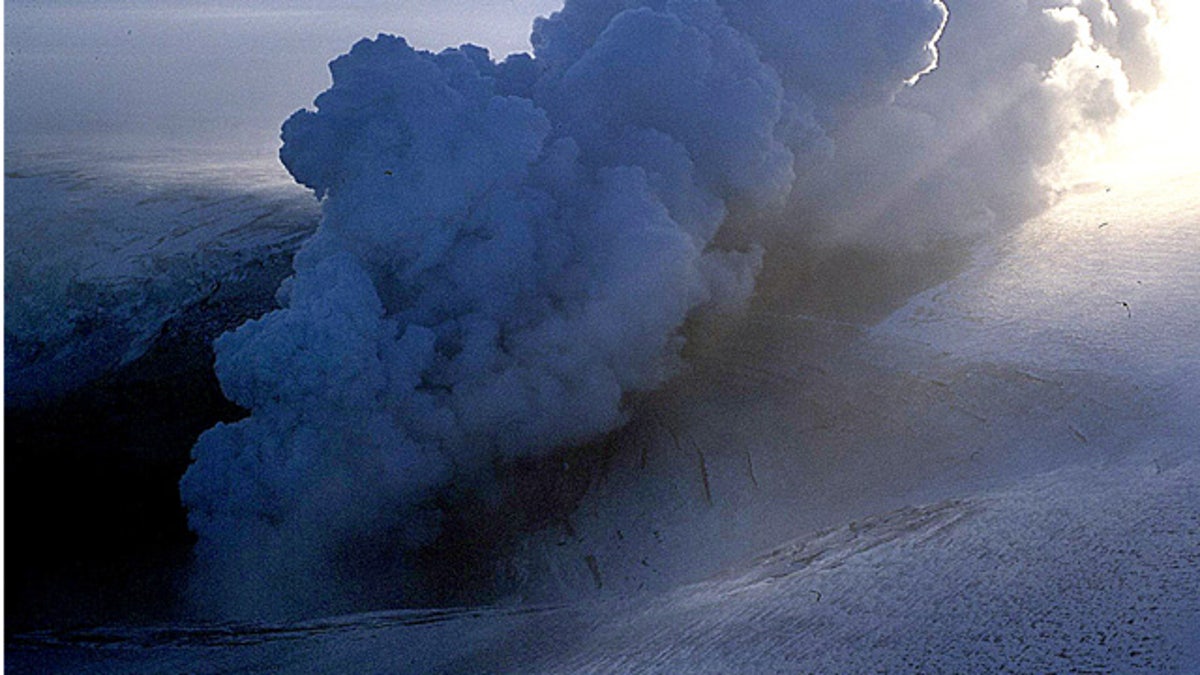
In this 2004 file photo, a cloud of ash erupts from Grimsvotn, a lake in the middle of Vatnajokull, the biggest glacier in Iceland. Torrents of water are pouring from a glacier that sits atop Iceland's most active volcano, an indication that the mountain is growing hotter and may be about to erupt, scientists said Monday, Nov. 1, 2010. (AP Photo/ Pll Stefansson)
Torrents of water are pouring from a glacier that sits atop Iceland's most active volcano, an indication that the mountain is growing hotter and may be about to erupt, scientists said Monday.
The flood that began Thursday at the Grimsvotn volcano is similar to one in 2004 that lasted five days and ended with an eruption that disrupted European air traffic, University of Iceland geophysicist Pall Einarsson said.
In April, millions of air travelers around the world were grounded when ash from Iceland's Eyjafjallajokul volcano led most northern European countries to close airspace for five days.
There are no signs yet of the underground tremors that would signal an eruption at Grimsvotn, Icelandic Meteorological Office geophysicist Gunnar Gudmundsson said.
Grimsvotn lies under 650 feet (200 meters) of ice on the Vatnajokull glacier in southeast Iceland. In addition to 2004, it erupted in 1998 and 1996, causing flooding to a largely uninhabited plain around it.
The flooding triggered by hot molten rock, or magma, from the volcano has been expanding a lake underneath the glacier, building pressure strong enough to send water pouring from under the ice cap.
A rugged island in the north Atlantic, Iceland is one of the world's most volcanically active countries.








































